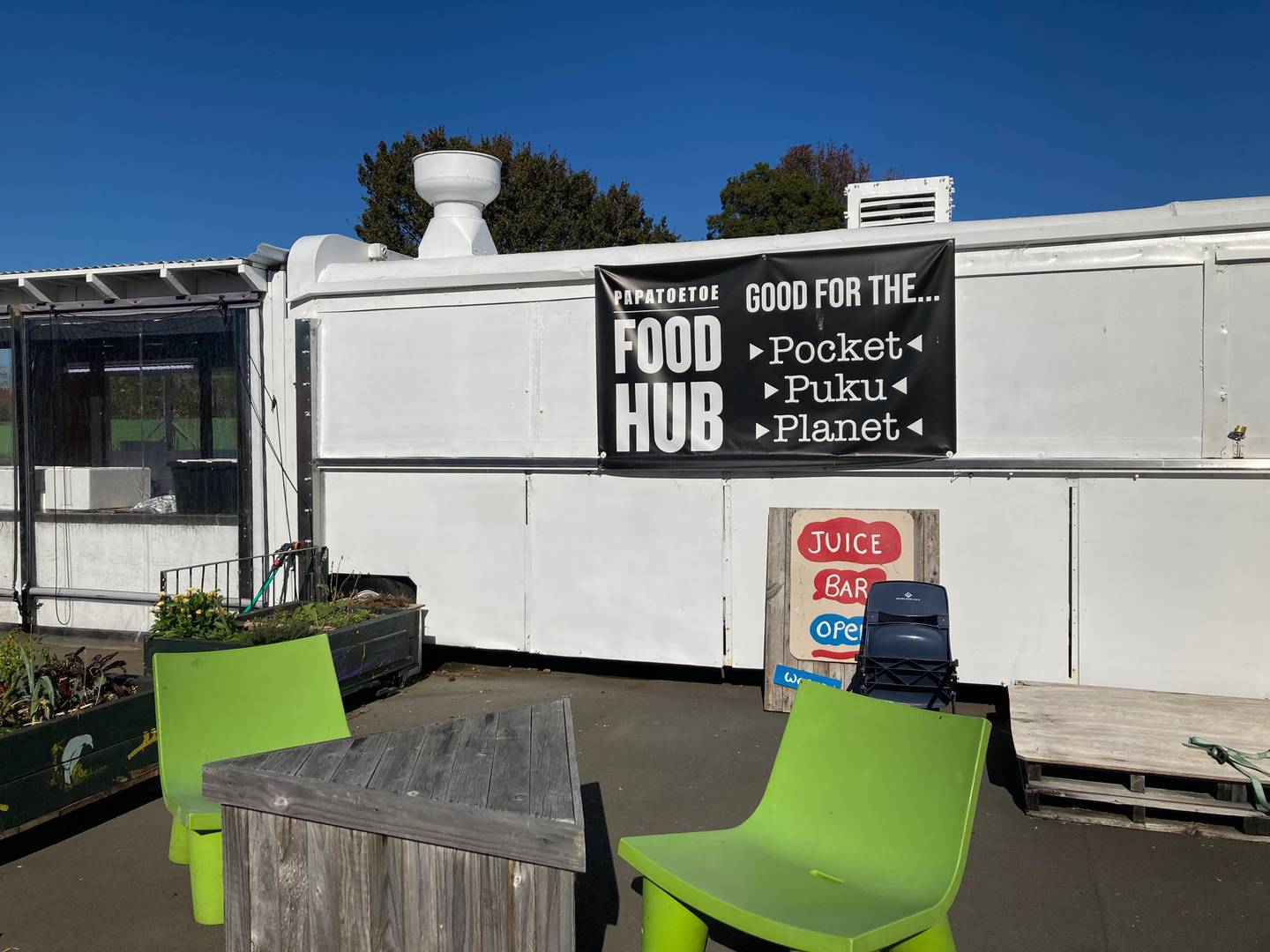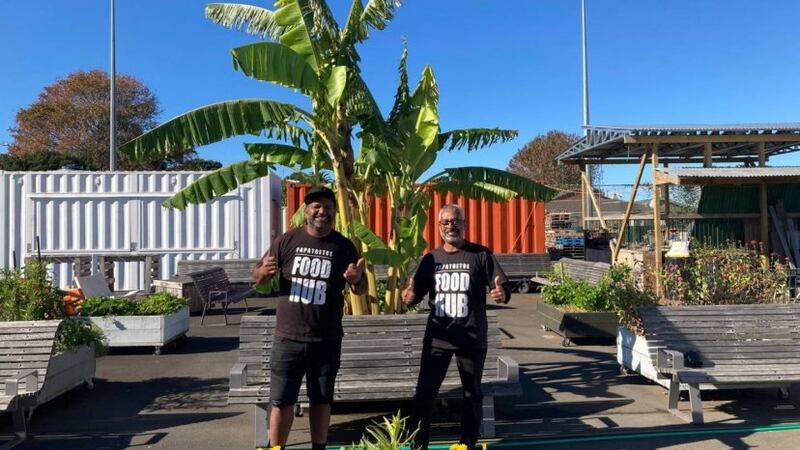Papatoetoe Food Hub curator Waikare Komere (left) and director Raju Ramakrishna. Photo / Breanna Tugaga-Rogers
A South Auckland social enterprise has come up with a community-based solution to fix the "broken food system".
The Papatoetoe Food Hub was started four years ago to rescue produce that normally gets thrown away, by repurposing it into affordable, cafe-quality food. The enterprise was set up by the Southern Initiative and Auckland Council's Eke Panuku Development, which gave the location for the Hub.
Hub director Raj Ramakrishna says this is an era when there is so much food waste yet, so much food need.
"The food system we have is not working for us. It's absolutely not working."
The enterprise sources the food from the local New World, which is directly across the parking lot, as well as donations of produce from farmers and food outlets who have no use for it.
The Hub has a strong belief in repurposing everything it gets. A food truck donated by fast food outlet The White Lady is now used as a kitchen and the Hub's hāngī pit is made from reclaimed wood.
Its main focus, however, is education about food waste and sustainability.
"We can't treat our whenua (land) this way. We have to look after it because the whenua is the one that feeds us so how do we care for it? How do we take care of waste?" Ramakrishna says.
The Hub runs free composting workshops for South Auckland schools and the wider community, as well as teaching kids how to grow their own food so they can take these skills home.

Outside the Papatoetoe Food Hub area. Photo / Breanna Tugaga-Rogers
In the past two years, the Hub has churned out 10 tonnes of compost through wasted food, which it has then put back into the land to regenerate it and grow more plants.
"It's an amazing circular economy we've managed to create within this space," Ramakrishna says.
The organisation also supports the revitalisation of indigenous kai (food) systems, so they teach students how to pack a traditional hangi, providing a learning experience that helps them regain cultural knowledge.
The mahi (work) they do for the community, however, sparks the need for a bigger conversation.
Julio Bin, the lead systems innovator behind the Hub, says solutions come when the elephant in the room is addressed.
"We're producing food to feed 40 million people but we're only [a population of] five [million], so we're exporting that, which is great, because it brings revenue to the country. But if we are producing all that amount of food, why are people going hungry?"
'Bad access to good food'
The Hub also wants to develop a socially inclusive food economy that is both accessible and affordable, especially for low socio-economic areas like South Auckland.
Ramakrishna says: "We know there is such great access to bad food but such bad access to good food all around."
All work is done through the community.
"It's all community driven. It came from our people who see the challenges and have come up with the solutions.
"There are a lot of agencies who do need to come to the forefront like the Ministry of Health, the Ministry of Education, the Ministry of Social Development. All of them need to be backing us because we are trying to solve their problems," Ramakrishna says.
"More of this'
Prime Minister Jacinda Ardern visited the Hub in 2020 and one of the first things she said, according to Ramakrishna, is "we should have more of this".
Ramakrishna says their kaupapa needs to be scaled up and taken out to the rest of the country as they want to give mana (power, authority, control) back to the people, and "that doesn't come from dependency but from resilience".
Auckland Council has acknowledged the transformative work the Hub is doing, and has identified its model as a way to minimise gas emissions, and has included it in the council's climate action plan.
"All the good work we do is only trying to wipe off all of the bad stuff that's been done before because the planet's reached the stage where we can't cope anymore, and we're leaving a terrible place for our young ones," Ramakrishna says.


